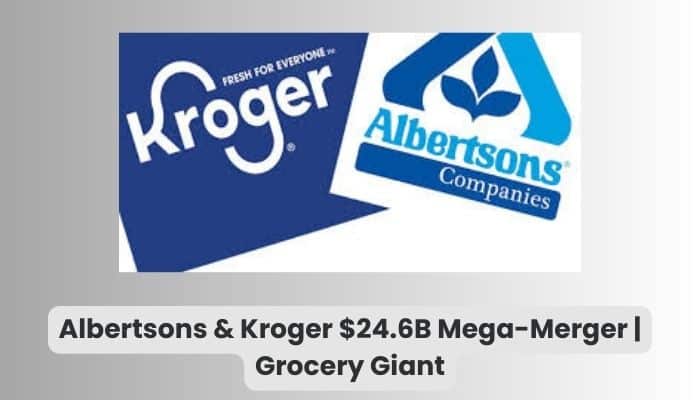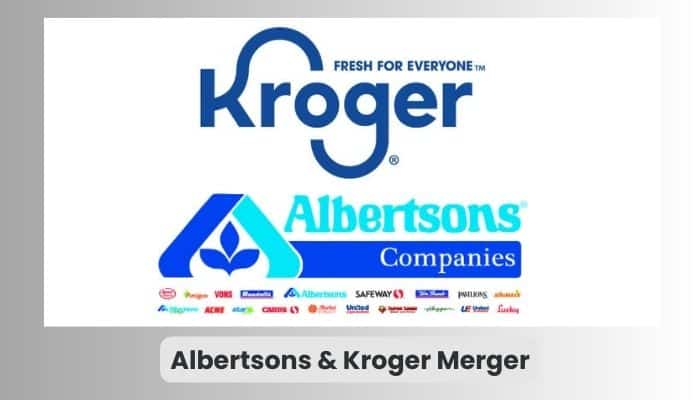Albertsons Companies and Kroger Co. announced a definitive agreement on October 14, 2022 to merge the two companies, creating a combined supermarket behemoth with an eye-popping $24.6 billion enterprise value.
The Deal Details
Under the terms of the deal, Albertsons shareholders will receive an estimated $27.9 billion in cash, stock, and Albertsons’ remaining outstanding debt. Specifically, they will receive $34.10 per share, representing around $9.2 billion in cash and 190.9 million shares of Kroger valued at $18.7 billion.

The new combined company will operate around 4,996 stores and boast around 710,000 associates across 48 states and the District of Columbia, serving around 85 million households annually. Kroger and Albertsons forecast $1 billion in cost savings through synergies.
Strategic Rationale
The proposed merger comes as both grocers face pressures from rising inflation, supply chain challenges, and growing competition from big box stores like Walmart as well as online retailers like Amazon. By joining forces, Kroger and Albertsons aim to better leverage their nationwide footprint, boost their omnichannel capabilities to meet evolving consumer demands, and generate economies of scale.
Kroger CEO Rodney McMullen, who will serve as CEO of the combined company, stated that the deal will “provide higher wages and better benefits for our associates and create more opportunities for career advancement.” Albertsons Chairman and CEO Vivek Sankaran said the agreement is “transformative in shaping the future of the grocery industry.”
Regulatory Scrutiny Expected
However, the proposed transaction will likely face intense antitrust scrutiny from the Biden administration, which has taken a tough stance against corporate consolidation. Several lawmakers have already expressed concerns that the deal could hurt competition, raise prices for consumers, and disrupt the grocery industry.

The companies sought to counter those concerns by arguing the combined entity would be able to leverage greater bargaining power to keep prices down during inflationary times. They also committed to establishing an “associate-first culture” and investing heavily in associate wages and training.
Nonetheless, antitrust experts predict the deal will be challenged by the Federal Trade Commission or Department of Justice, setting up a potentially lengthy legal battle that could take over a year to resolve.
Looking Ahead
If approved, the Albertsons-Kroger merger would reshape the U.S. grocery landscape, creating a new titan with around 13% market share second only to Walmart. The companies expect the deal to close in early 2024 and for Albertsons to trade as a subsidiary of Kroger for around four years.
Whether the deal ultimately wins regulatory approval remains to be seen. Yet the proposed combination underscores the immense pressure on legacy grocers to adapt to seismic shifts in the industry amid stiff competition, changing consumer habits, and inflationary pressures.